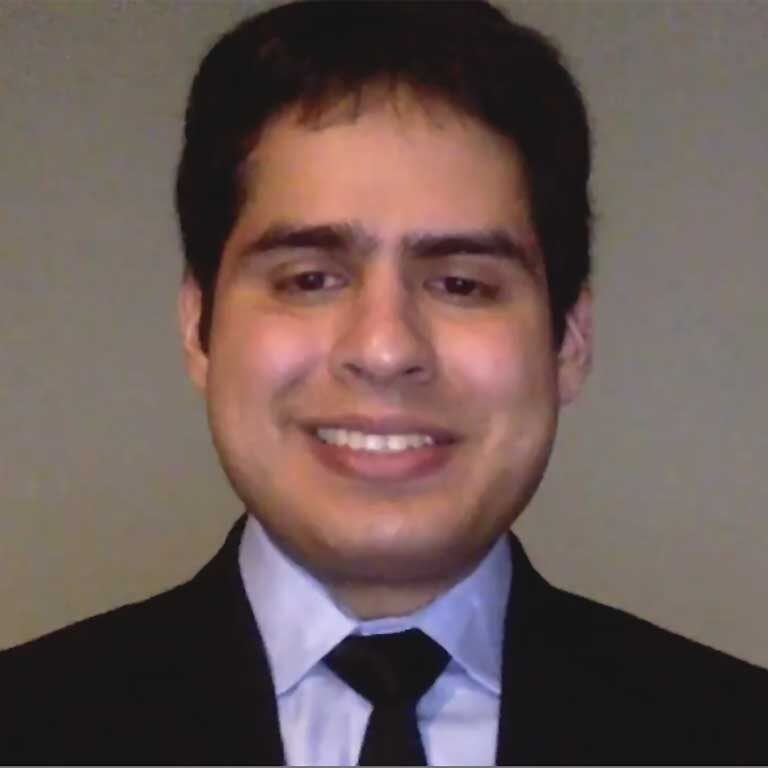How did getting a scholarship from The Actuarial Foundation help you?
The Actuarial Foundation’s scholarship was a tremendous boon to my college journey. During my high school years, I was unsure of how I’d ever afford college. Fast-forward to my senior year at Georgia State University, and that nightmare of financial issues with higher education almost came to pass as my Pell Grant was running out. For this reason, I have been tremendously grateful to The Actuarial Foundation and its sponsors for supplying the funds necessary to earn my Bachelor of Science in Mathematics from a Society of Actuaries (SOA) Center of Actuarial Excellence.
How did you break into the actuarial science field?
My actuarial journey began in engineering. I discovered early on in college that I wasn’t fond of science but extremely liked math. Landing an entry-level actuarial position has been challenging: It took me two years of interviews to get an actuarial internship, which I completed AFTER graduation. Similar circumstances surround my search for a full-time actuarial entry-level position: I interviewed for positions from August 2020 through February 2021 with little luck, so I am currently doing something else in the meantime.
How are you managing your career journey in the meantime?
As you can see from my early career experience, I had to pivot and do something else until an actuarial position that I am a fit for opens. Currently, I am a software engineer at Infosys, and I love it!
If you could do it all again, what’s one thing you would change?
They say hindsight is 20/20. When reflecting on my career journey, I think being actuarial about it in terms of assessing risks would have helped me prepare better for the unexpected; for the strong possibility of not being hired into an actuarial role immediately after my degree program. In light of the fact that securing an actuarial position is not always guaranteed (nor any position for that matter), I would recommend to similar students seeking to enter the profession to be at least prepared to wait some length of time before being hired into your field. The waiting period can be accounted for by strengthening one’s knowledge, skill, and experience base to pursue positions in in-demand sectors of the economy outside of the insurance and financial industries — this will open up opportunities that may have otherwise been out of reach. There are other ways to be prepared, of course. For example, taking on less debt by pursuing scholarships (like I did with The Actuarial Foundation), which could keep a student better financially afloat during those so-called rainy days.
In addition, I wish I had known about the significance and value mentorship could provide and where to seek mentorship for help with math. My mathematical bearings did not solidify until my final year of high school when I decided to go beyond the material presented in a class covering an array of topics including Statistics and Analytic Geometry in the Cartesian plane. Prior to this, I wavered between teaching the class and single-handedly winning team competitions, taking remedial Elementary Algebra (distinct from Abstract Algebra!), and Euclidian Geometry over the summer. I can imagine appreciating a mentor to give detailed answers to my questions, though I must admit that there is no exercise that compares to proofs and derivations when it comes to testing true understanding as opposed to the rote application of procedures and blind memorization. Struggling with math by yourself as a student is hard enough sometimes, and it would have helped if I only knew about the resources available to me before going to college.
How are you currently giving back to the community?
Since mentorship isn’t something I was lucky enough to benefit from myself, I thought one way to give back would be to become a mentor with The Actuarial Foundation. I became a mentor with the intention of making a positive impact, and the scholarship was an invaluable resource. Nonetheless, I intend to participate in actuarial career fairs this Summer 2021, and my dream of becoming an actuary (or another category of practitioner of the mathematical sciences) is just beginning to unfold. I currently work as a software engineer at a technology consulting firm — skill diversification for the win!
Learn more below by watching a clip from an interview I did with The Actuarial Foundation earlier this year, or reach out to me directly at zanemeraz.2468@gmail.com. Thanks for hearing my story.
Categories: Partnerships, Profiles, Volunteering
Tags:

